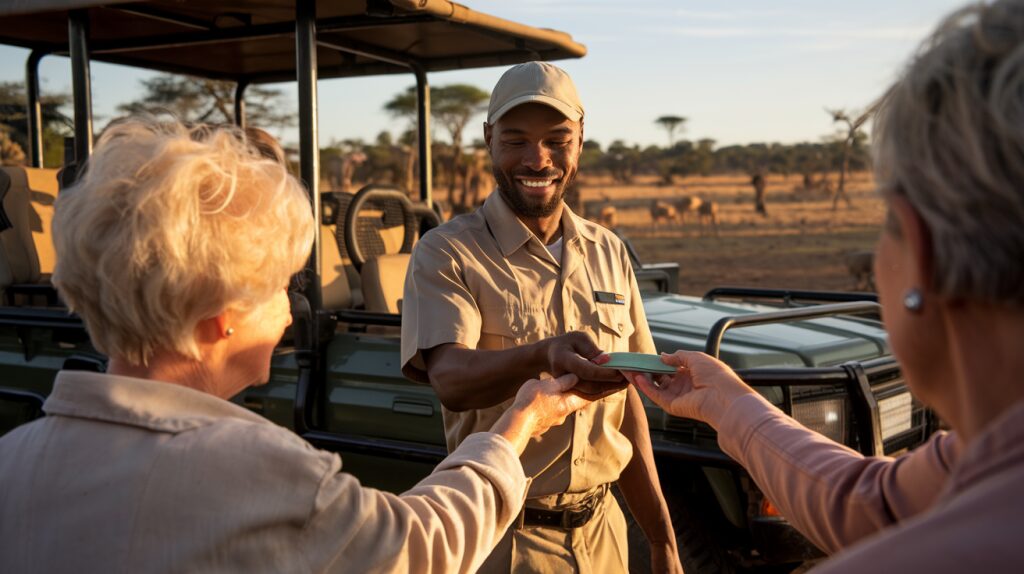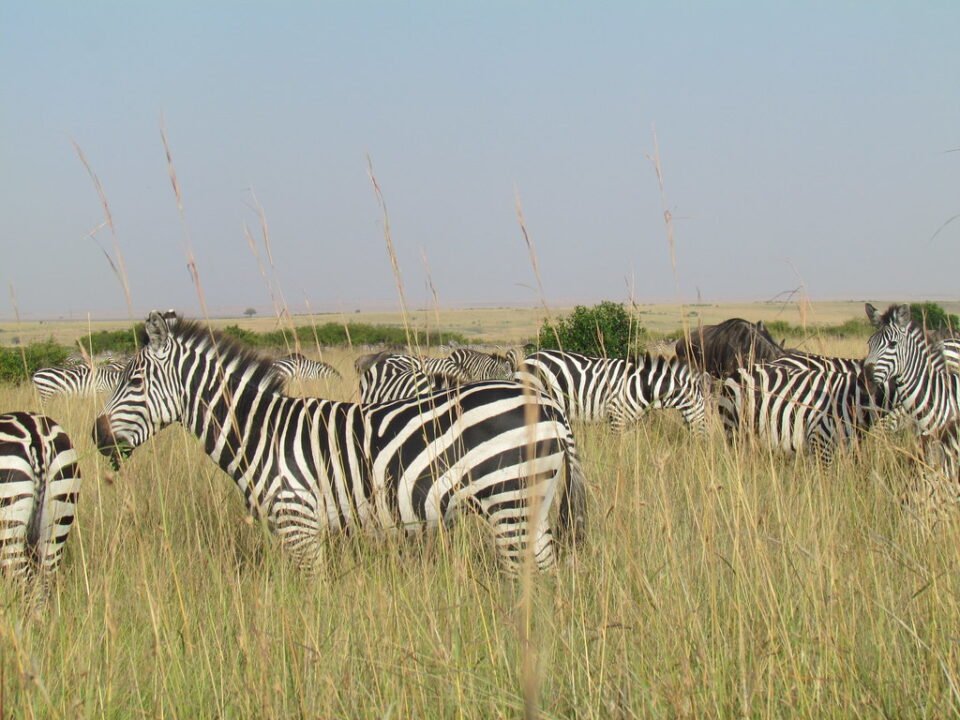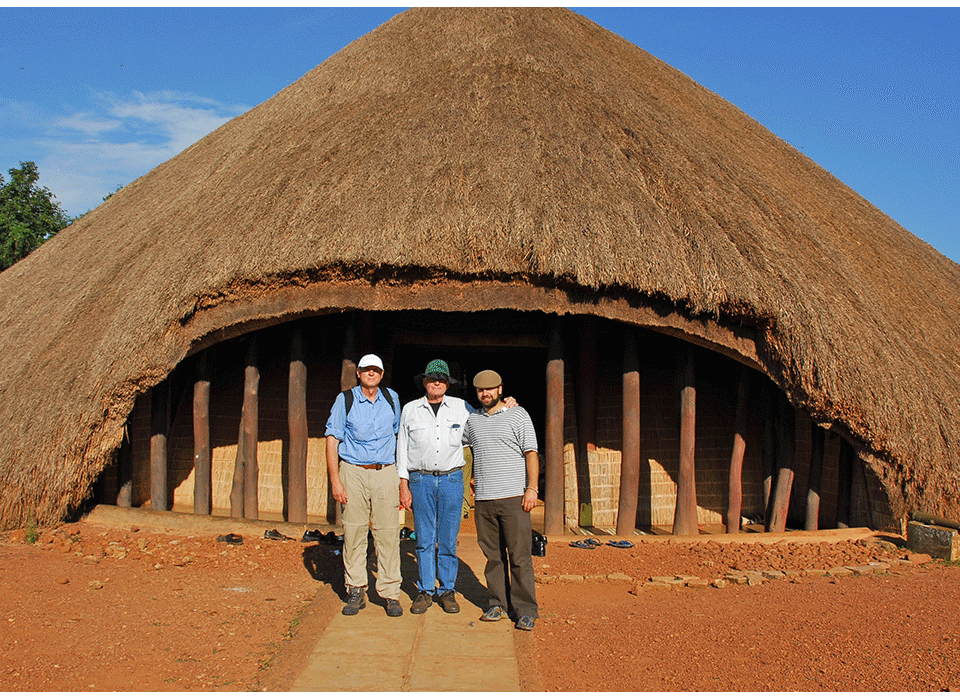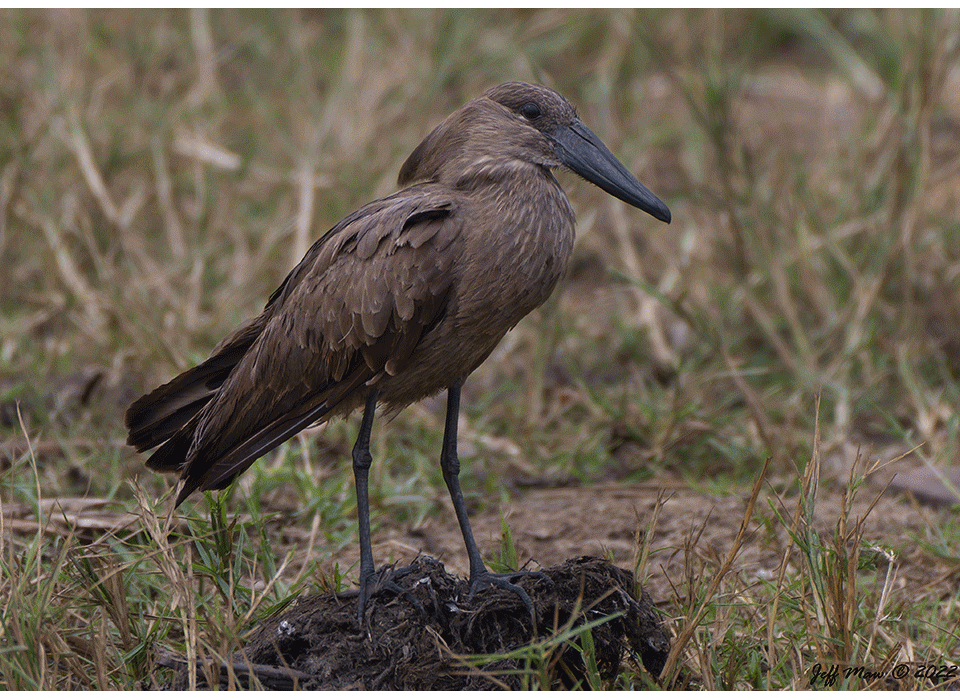
What’s the tipping culture like in Kenya?
November 20, 2025
Are vaccines required before visiting Kenya?
November 20, 2025How Much Should I Tip Safari Guides?
Tipping safari guides is one of the most common questions travelers ask before embarking on an African wildlife adventure. The role of a guide is central to the entire safari experience; they are storytellers, wildlife experts, cultural interpreters, safety guardians, and often the people who transform an ordinary game drive into a lifetime memory. Because of this deeply personal service, tipping becomes a meaningful way to show appreciation. Yet many travelers still wonder how much is appropriate, when to tip, and what factors influence the amount. This detailed blog explores everything you need to know about tipping safari guides so that you can travel with confidence and respect local customs.
A safari guide’s work goes far beyond driving a vehicle. They track wildlife using animal prints, calls, scents, and patterns learned over many years. They understand the landscape intimately and navigate complex, rugged terrains with ease. They share knowledge about animal behavior, migration cycles, plant species, cultural traditions, conservation efforts, and the delicate balance of the ecosystem. Good guides communicate clearly, anticipate guests’ needs, and adapt each safari moment to match guest interests, whether that means photography, birdwatching, predators, botany, or cultural insights. Because of this high level of expertise, tipping safari guides is not simply a courtesy; it is recognition of professionalism and the effort invested in making your safari exceptional.
Why Tipping Safari Guides Matters
Safari guides in East Africa, Southern Africa, and other wildlife destinations often work long hours in demanding environments. They may start their day before sunrise, prepare the vehicle, track animals for hours, and stay alert for safety and comfort throughout the journey. Many guides work for several weeks at a time, staying away from their families during peak tourism seasons. Tipping forms a significant part of their overall earnings, helping supplement their income in a sustainable and appreciated way.
Tipping also communicates that guests value the experience provided. In many safari cultures, gratuities are not demanded, but they are deeply respected. Guides take pride in their work, and knowing that guests appreciate their dedication strengthens their motivation and professional growth. A meaningful tip, paired with verbal gratitude, makes a lasting impact.
Standard Tipping Ranges for Safari Guides
Although tipping is not mandatory, there are widely accepted guidelines used across various safari destinations including Kenya, Tanzania, Uganda, Rwanda, Botswana, Namibia, Zambia, and South Africa. A common recommended range is between USD 10 and USD 20 per guest per day for safari guides. This range may vary depending on service quality, lodge category, group size, and the complexity of your safari itinerary.
Guests who receive exceptional service often tip more than the standard recommendation. For example, if a guide offers extended game drives, arranges special wildlife sightings, assists with photography positioning, provides in-depth natural history insights, or offers outstanding hospitality, increasing the tip is encouraged. Safari guides value fair recognition, and your generosity supports both them and their families.
Private safari guests typically tip on the higher end because the guide’s time is fully dedicated to them. In small-group tours, where several guests share the same guide, individuals usually tip slightly lower, but the combined total remains substantial and fair.
Factors That Influence Tipping Amounts
Several elements may affect how much you choose to tip your safari guide. Understanding these factors helps you make a fair and thoughtful decision that aligns with your travel experience.
The first factor is the length of your safari. Longer safaris involve more personalized connection, more hours of expertise, and sustained attention. For multi-day safaris, a per-day amount is easier to calculate and helps you allocate a consistent gratuity.
The second factor is the level of personalization. Some safaris are highly tailored to your interests. For example, birding enthusiasts may get special attention with targeted routes, while photographers may need strategic lighting, positioning, and patience from the guide. If your guide put in extra effort to align with your preferences, tipping more acknowledges that dedication.
Another factor is lodge category. Luxury safaris typically involve premium service, highly trained guides, and deeper interpretation skills. Many travelers in high-end camps choose to tip above the standard range to match the sophistication of the experience.
The type of wildlife sightings also plays a subtle role, though it should never be the main reason for tipping. Wildlife is unpredictable, and guides cannot guarantee specific sightings such as big cats or rare species. What matters more is the guide’s effort, knowledge, attitude, and professionalism rather than the luck of the bush.
Group size is also important. In larger groups, each guest may tip slightly less individually, but the combined gratuity remains generous. In private or intimate safaris, tipping more reflects the personalized service.
Finally, destination differences may influence tipping culture. For example, tipping norms in Kenya and Tanzania are often slightly higher than in southern countries like Namibia. However, the general USD 10 to 20 range remains widely applicable across most destinations.
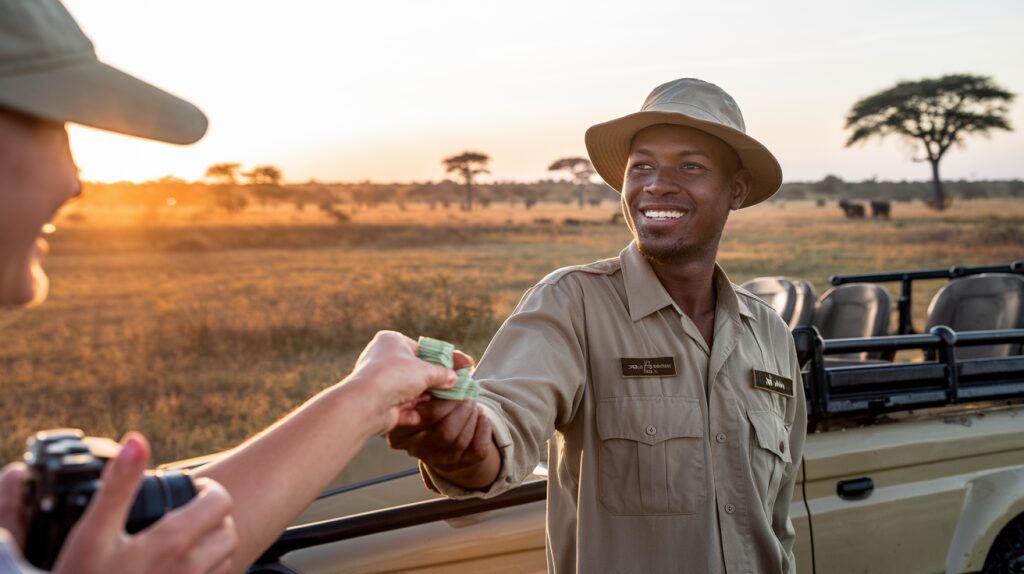 What Makes Safari Guides So Essential?
What Makes Safari Guides So Essential?
Understanding how much to tip becomes easier when you appreciate the full role safari guides play. They handle your daily safety, monitor animal behavior, and make decisions that keep you comfortable in the wild. They share stories passed down through generations, explain ecological relationships, and bring meaning to every sighting.
A good guide can identify animals from miles away, read fresh tracks in the dust, spot camouflaged creatures, and interpret subtle cues such as bird alarm calls or distant rustling. They anticipate animal movements based on weather, terrain, and habitat patterns. They also manage guest expectations with honesty, humor, and cultural warmth.
Safari guides are ambassadors of conservation. Many of them grew up in communities neighboring national parks and have a deep sense of responsibility toward wildlife protection. By tipping them well, travelers directly support conservation livelihoods, encouraging communities to continue championing wildlife.
When and How to Tip Safari Guides
The best moment to tip your guide is at the end of your safari or on the last day of your game drives. This allows you to reflect on the experience and offer a tip that matches the quality of service. Tipping should be done discreetly and respectfully, often using an envelope. Many lodges provide small envelopes in guest rooms for this purpose.
If you have a multi-guide experience, such as transfers between parks or different activities, you should tip each guide individually. For example, you may have one guide for the first three days and another for the rest of the safari.
Local currency (Kenyan Shillings, Tanzanian Shillings, Ugandan Shillings, etc.) or USD in clean, untorn notes are widely accepted. Avoid giving old-series USD notes or damaged currency, as banks may reject them.
It is important to offer verbal appreciation when tipping. A simple but heartfelt thank you, combined with your envelope, makes the gesture more meaningful. You may also leave positive reviews mentioning the guide’s name, which helps support their career advancement.
Should You Tip Based on Wildlife Sightings?
Many guests feel tempted to tip more when they see rare animals like leopards, wild dogs, cheetah cubs, or a dramatic predator hunt. While there is nothing wrong with tipping extra because you feel happy or amazed, it is crucial to understand that wildlife sightings depend heavily on luck.
Guides work hard to track animals, but they cannot guarantee that nature will cooperate. The quality of guiding should be measured by their skill, patience, knowledge, and service—not by which animals appear on a particular day.
If a guide invests extraordinary effort to help you witness something special, such as driving long distances or tracking for extended periods, tipping generously is entirely appropriate. Just avoid creating a performance-based tipping expectation, as it contradicts the core values of ethical safari guiding.
Budgeting for Tipping on Safari
A helpful way to avoid confusion during your safari is to plan your tipping budget before the trip. For a week-long safari, most travelers set aside between USD 70 and USD 140 per guest for guide gratuities, depending on service quality and lodge type. This makes it easier to enjoy the experience without worrying about calculations during the journey.
In addition to guides, many guests also allocate a small separate budget for lodge staff, porters, waiters, and housekeepers. Lodge staff tips are usually placed in a communal box and distributed fairly across the entire team. Safari guide tips, however, should always be given personally.
Final Thoughts on Tipping Safari Guides
Tipping is not an obligation but a thoughtful way to honor the hard work and deep knowledge that guides contribute to your safari. A well-tipped guide feels appreciated, respected, and motivated. They carry your gratitude into their work, into their homes, and into the communities that keep conservation alive.
Your safari guide is one of the main reasons your wildlife adventure becomes unforgettable. Their passion, patience, storytelling, and ability to navigate the wild elevate every moment. Offering a generous tip is one of the most meaningful ways to acknowledge that impact.
Plan Your Safari With Confidence
When planning your safari, working with a reliable and community-conscious travel partner ensures that the entire experience flows smoothly. Experiya Tour Company specializes in well-organized, ethical, and memorable safari journeys across East Africa. Their team works closely with experienced guides, supports responsible tourism, and ensures travelers understand all aspects of safari etiquette, including tipping culture.
For a journey marked by professionalism, comfort, and expert guiding, booking your safari with Experiya Tour Company is highly recommended.

